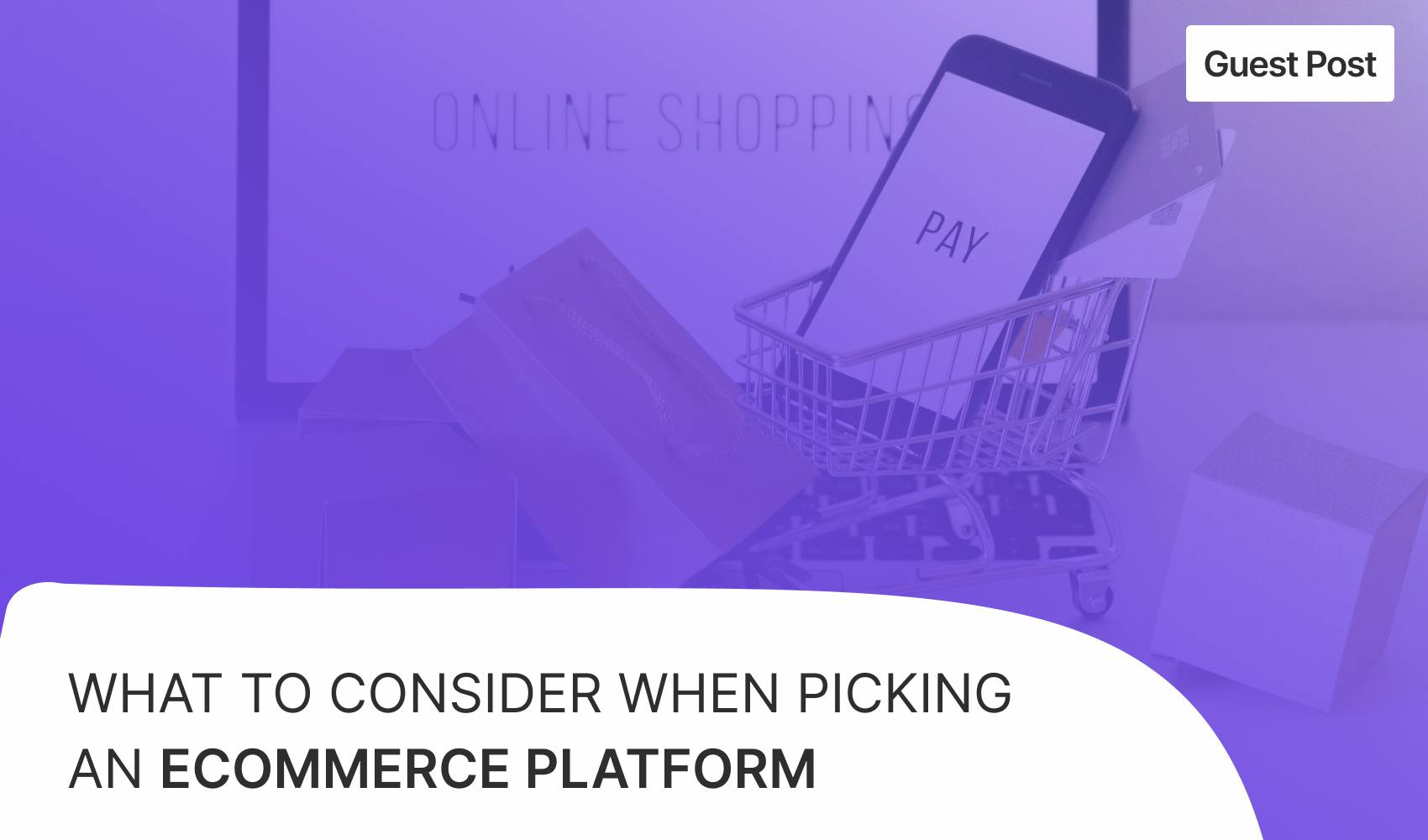What Do You Need to Consider When Picking an Ecommerce Platform?

On the whole, this is a solid time to start an ecommerce business. It isn’t perfect, admittedly, with the online marketplace packed with competition, but it’s so accessible these days — and it’s the perfect fit for someone who wants to indulge their creativity, take control of their professional destiny, and make money from home without needing the 9-to-5 rigamarole.
So let’s say you’ve made a commitment to launching your very own store, but you’re still in the early stages of planning. There’s much to think about. You need to decide which products you’re going to sell, what marketing strategy best fits your goals, and how you’re going to fulfil your orders — and then there’s the central matter of choosing an ecommerce platform.
Despite being extremely important, this is often done without much thought: aspiring merchants just grab the first systems they see that look half-decent, assuming ecommerce platforms are roughly equivalent. This obviously isn’t the case. As is the case with crowdfunding platforms, every platform has unique strengths and weaknesses, and choosing the wrong platform will hamper you enormously in the long run.
To help you make a sensible decision, we’re going to run through a shortlist of things you need to consider when looking at various ecommerce platforms. Let’s get started.
User interface complexity
If you’re new to ecommerce, then it’s extremely important that you choose a system with a gentle learning curve. This isn’t the same as a system that’s simple and lacking in functionality, though. You’ll find that the best platforms for beginners are extremely intuitive without sacrificing power. In other words, they’re easy to use but hard to master.
Viable hosting options
Some ecommerce platform developers provide hosting as a matter of course, leaving you no alternatives: consider big names like Shopify and Wix. Others, like OpenCart, require you to choose and arrange independent hosting. Between those groups are the platforms that allow either: you can use the provided hosting or find your own. Magento is a great example.
If you intend to use provided hosting, you should read some reviews to see what users have to say. Is the hosting consistent? What’s the performance like? And what about the support service? There’s no use in opting for a sophisticated platform if it’s stuck on bad hosting. And if you’re planning to use other hosting, look at the available options (particularly those from developers with relevant platform-specific expertise) before making a decision.
Native features
What can a platform do to support you? Can it optimize the technical SEO elements of your store to help you earn strong Google rankings? Does it allow you to customize the checkout process to minimize cart abandonment? And what about the included themes? Do they provide plenty of options for making your store look great? Focus on the tools that really matter to you.
Available extensions
Some platforms are relatively threadbare by default but become powerhouses when you factor in the available plugins, extensions or apps. Others are very strong initially but get even better when you choose from their large ranges of integrations: Shopify and WooCommerce are great examples of this, with each supported by most developers in the ecommerce world.
There are dangers to relying on extensions, of course, as anyone who’s used WordPress at length would likely confirm (plugins can interact in strange ways, leading to frustrating errors). There’s also the matter of waiting for updates. A platform update can leave various plugins non-functional until they’re updated, something that can take a while. But if you use them carefully, extensions are hugely important additions to your system.
General scalability
Some platforms are designed for small stores in mind, while others are geared more towards the enterprise level. There probably aren’t many solopreneurs out there using Magento, for instance, as it’s always been developed to target larger businesses. Due to this, which platform you should favor will depend on how big you want your store to become. If you intend to keep it as a small side-hustle, something like the bottom Wix tier should be fine — but if you want to grow it into an ecommerce mainstay, try Shopify or Magento instead.
Wrapping up
Not one of the ecommerce platforms on the market is perfect, so there’s no one-size-fits-all solution (and even if there were, it would soon enough be supplanted by one of its rivals). Accordingly, focus on what you need and how the platform options compare today, then do your best to make a solid long-term commitment. Good luck!

Rodney Laws is an eCommerce expert with over a decade of experience in building online businesses. Check out his reviews on EcommercePlatforms.io and you’ll find practical tips that you can use to build the best online store for your business. Connect with him on Twitter @EcomPlatformsio.

